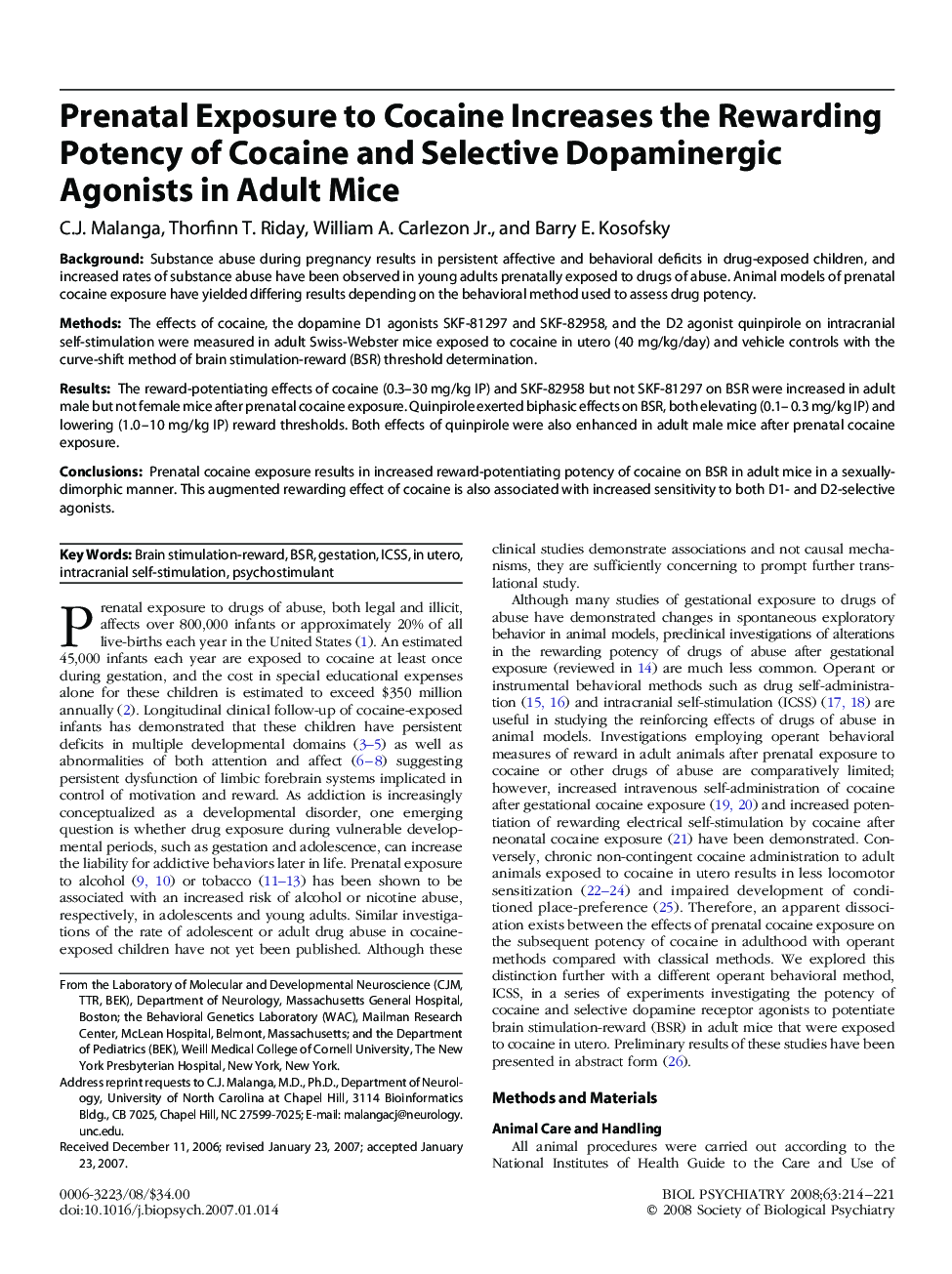| کد مقاله | کد نشریه | سال انتشار | مقاله انگلیسی | نسخه تمام متن |
|---|---|---|---|---|
| 4180812 | 1276620 | 2008 | 8 صفحه PDF | دانلود رایگان |

BackgroundSubstance abuse during pregnancy results in persistent affective and behavioral deficits in drug-exposed children, and increased rates of substance abuse have been observed in young adults prenatally exposed to drugs of abuse. Animal models of prenatal cocaine exposure have yielded differing results depending on the behavioral method used to assess drug potency.MethodsThe effects of cocaine, the dopamine D1 agonists SKF-81297 and SKF-82958, and the D2 agonist quinpirole on intracranial self-stimulation were measured in adult Swiss-Webster mice exposed to cocaine in utero (40 mg/kg/day) and vehicle controls with the curve-shift method of brain stimulation-reward (BSR) threshold determination.ResultsThe reward-potentiating effects of cocaine (0.3–30 mg/kg IP) and SKF-82958 but not SKF-81297 on BSR were increased in adult male but not female mice after prenatal cocaine exposure. Quinpirole exerted biphasic effects on BSR, both elevating (0.1–0.3 mg/kg IP) and lowering (1.0–10 mg/kg IP) reward thresholds. Both effects of quinpirole were also enhanced in adult male mice after prenatal cocaine exposure.ConclusionsPrenatal cocaine exposure results in increased reward-potentiating potency of cocaine on BSR in adult mice in a sexually-dimorphic manner. This augmented rewarding effect of cocaine is also associated with increased sensitivity to both D1- and D2-selective agonists.
Journal: Biological Psychiatry - Volume 63, Issue 2, 15 January 2008, Pages 214–221